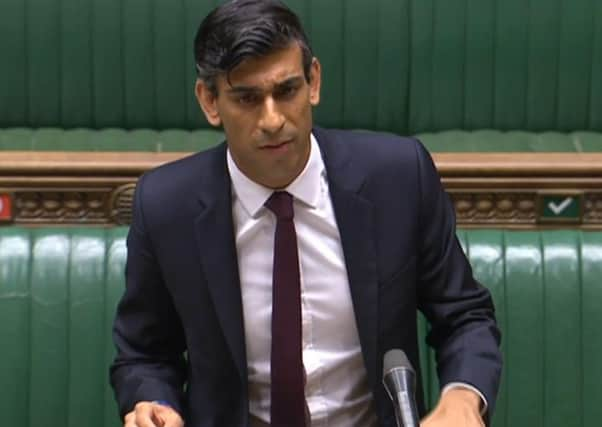BRUSSELS NOTEBOOK: Brexit has slipped out of headlines


There is some light at the end of the coronavirus tunnel, in the shape of a vaccine, but a hard winter still lies ahead. The Chancellor’s statement this week summed up how dire the UK economic situation is and confirmed there is no quick or painless solution. It also confirmed the views of the Bank of England governor and others that coronavirus has left a no deal outcome unaffordable for the government. This is not the case for the EU 27, which is probably why there is now a clear imbalance in the negotiations, with the EU better able to take a hard line in the final push.
It seems bizarre that four years of negotiations have come down to fish – an emotive issue but a tiny part of the UK economy that needs a trade deal to export to the EU – state subsidies to UK industries and how a deal would be policed. However, this is the road politics leads us down and government policy is probably now about hoping it can find ways to spin the outcome as a victory over Brussels. Most people will see through this, but Boris Johnson has never lacked faith in his ability to bluster defeat into a great success.
Advertisement
Advertisement
Brexit has been achieved, but it is hard to believe anyone could see the outcome of years of negotiation as a great success. Those who support leave will be disappointed, but will have at least cemented the UK’s departure from the EU. Remain advocates will conclude that the deal changes so little of substance that it is acceptable. What will not be solved at this stage is the growing border problem – not between Northern Ireland and the Republic of Ireland, but in the Irish Sea with the red tape that will bring set to dwarf the worst aspects of the CAP.
Looking back to the run up to the 2016 referendum, many things that were promised then have not come to pass. We are certainly not about to conclude what Michael Gove and Boris Johnson promised would be the easiest trade deal in history. One of the best comments I remember from 2016 came from the then EU farm commissioner, Phil Hogan. He was a master of putting complex things in a simple way and it was unfortunate for the EU that when he became trade commissioner he was forced to resign over attending a golf dinner in Ireland in lock-down. Before the referendum he summed up farmers’ choice as the certainty of the CAP with all its flaws against a gamble on the generosity of the UK Treasury.
That gamble was taken and as the UK regions now contemplate an unexpected drop in rural development funding, those words have taken on a new relevance.
The reasons for this apparent reversal of government policy to maintain EU funding commitments are complex. They reflect the fact that rural development programmes and spending always run in arrears, because of the lengthy decision making processes to secure approval. Whether this is resolved or not it raises wider issues about post-Brexit funding for rural areas. The UK has always had a poor share of EU rural development funds, but something was better than nothing. Now, thanks to Westminster, its future is in doubt, not least because that future depends on ongoing projects being supported until a new plan is in place.
Advertisement
Advertisement
Farming is a big economic engine in rural economies but it cannot carry them alone, especially when both the public and private sectors are targeting rural areas as part of cost cutting plans. London seems to be seeking to use its new green farm support model to deliver things that in the past would have been delivered through rural development programmes. This is unlikely to achieve the wider aims of helping whole rural areas and it will be up to the devolved regions of the UK to come up with a better approach within their budgets and farm support model. Significantly the EU-27 in its new CAP is sticking with much of the existing framework. Direct payments will continue and there will still be a separate funding stream for rural development. That is not the case in the UK. Farmers need to be convinced that in leaving the CAP and the EU they are moving towards something better.